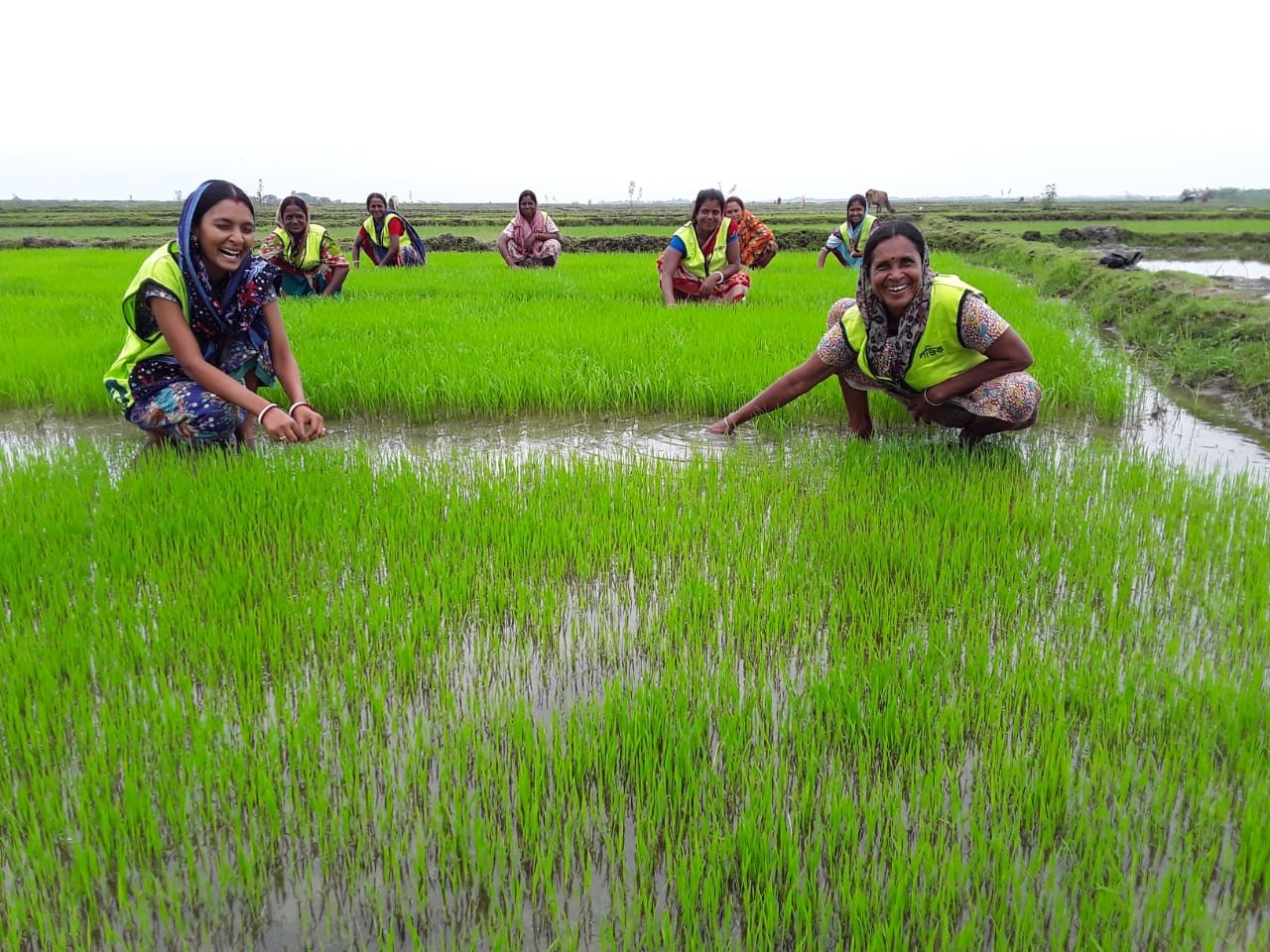HOW CLIMATE-RESILIENT FARMING IS EMPOWERING WOMEN
Tondra Mollik spends several hours a day in her homestead where she is cultivating a variety of vegetables. Tondra Mollik, wife of a daily-wage laborer and a mother of two, started growing vegetables in her yard two years ago after her husband’s income declined. “Floods and waterlogging are impacting agriculture in our area significantly, making it difficult for wage laborer as my husband to find regular work. I am supporting my family financially including my children’s education by selling vegetables.” Tondra’s case is not unique in Bangladesh’s coastal areas, where extreme weather events linked to climate change routinely cause misery amongst local communities.
Vulnerability to climate change
Bangladesh is one of the countries most vulnerable to climate catastrophes. The country faces frequent floods, droughts, riverbank erosion, cyclones, storm surges. The southern coastal part of the country is increasingly battered by climate-induced disasters which impact life, livelihood and property of people in many ways, often displacing hundreds of thousands of people. Daily-wage workers frequently bear the largest brunt of these disasters, with many of them losing their income sources.
Women hit hard by adverse climate events
As studies reiterate, women in developing countries are hit the hardest during climate change adversities. Women in these regions mostly rely on traditional small scale farming methods, cattle and poultry rearing, as well as handicrafts for their livelihood. Adverse climatic events such as flooding, waterlogging, salinity intrusion in water and soil and more, impedes their agricultural production. When climate related problems affect agricultural production, women from poor and climate vulnerable households face the brunt. Moreover, they lack the necessary tools, additional finances, and technical skills to break out of climate induced poverty.
Building climate resilience
With a view of supporting the most climate-vulnerable women to build resilience against climate change by enabling them to undertake climate adaptative livelihoods, Local Government Initiative on Climate Change (LoGIC) project is providing a Community Resilience Fund (CRF). The project is led by the Local Government Division of the Ministry of Local Government Rural Development and Cooperatives. It is a joint initiative of the Government of Bangladesh, United Nations Development Program, United Nations Capital Development Fund, European Union, and Sweden. Through this Community Resilience Fund support, these women use a community-based approach to invest in climate adaptive livelihoods ranging from sunflowers production, saline-tolerant rice cultivation, watermelon cultivation and more.
From the fields of Bagerhat
A group of 24 women from the most climate vulnerable area in Joykha village under Sonailtala Union, in Mongla Upazila, Bagerhat harvested heaps of yield in rice cultivation. Upon receiving the community resilience fund from the LoGIC project, each of these 24 climate vulnerable women received BDT 29,480 (US$ 349) in their bank accounts which was opened with the support of the project. They jointly invested in saline tolerant rice cultivation as a climate adaptive livelihood activity. LoGIC project facilitated trainings for these women from Upazila Office of Department of Agricultural Extension.
Together they developed a business plan and accordingly leased 4.6 ha lands from landowners within their surrounding neighborhood and prepared the land for seedling production of saline tolerant rice varieties such as BR-11 and BRRI dhan-52. They completed all the steps of the rice cultivation as they were trained and with supervision of the Upazila DAE staff who made recurrent visit to the site. As a result of supervision, extensive care, and technological support the rice production went well, and the women’s group harvested golden rice within four and half months of sowings seed. They obtained around BDT 6.5 lac in rice production by investing BDT 2.5 lac with a culture period of only 120 days during monsoon season.
As a result of supervision, extensive care, and technological support the rice production went well, and these women producers were harvesting golden rice within a few months of sowing the seeds. They obtained around BDT 6.5 lac in rice production by investing BDT 2.5 lac with a culture period of only 120 days during monsoon season.
“Our lives have been turned around. This year our rice cultivation has increased compared to the previous years because of using these new varieties or rice. We have learnt how to make our livelihood climate resilient- this is a crucial step towards our empowerment.” says Tondra Mollik.
Meanwhile, LoGIC project also facilitated market linkages and networking support for these women with relevant government departments which enable them to sell their produce. These women are planning to undertake upcoming seasonal cultivation by reinvesting this profit into other climate adaptive livelihood opportunities.
LoGIC project has played a catalytic role in this community by empowering left behind communities, especially women by enabling them to rise out of climate vulnerability. The project is designed to support roughly 400,000 most vulnerable households in 72 unions in 7 districts of Bangladesh.
